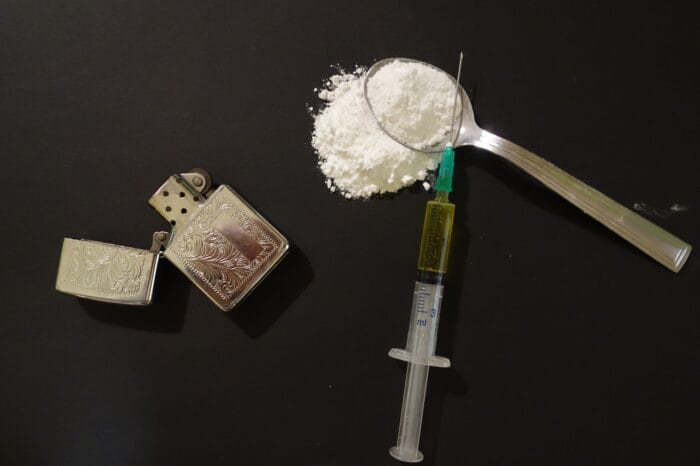Mental health challenges affect millions of people every year, with around 50% of people estimated to develop a mental health disorder at some point in their life.[1]
This is often distressing, confusing and difficult to cope with, for the person experiencing the mental health issue as well as their loved ones trying to support them.
However, if we are able to recognise the signs of someone dealing with a mental health challenge, it is much more likely that the person affected and their loved ones can find the help they need.

Mental health has a huge impact on people’s lives, and there are a wide variety of mental health challenges that people can face.
Knowing what mental challenges one might be dealing with can be useful in informing us how we can help them and where we can go to support our loved one in finding professional help.
Although mental disorders vary in terms of their symptoms and how they affect the person afflicted, some disorders do share signs and symptoms and are therefore grouped together.
Mental health disorders are grouped based on symptoms, meaning that many of the signs below will relate to several disorders within one disorder category.
For example, depression and bipolar disorder are both within the umbrella of mood disorders.
If your loved one is presenting with a particular symptom, therefore, it is important not to assume that they have one specific disorder.
Some of the most common mental health disorders [2] across mental health categories that people can face in their lives include:

Below, we have detailed some of the most common signs and symptoms of mental health disorders for friends, family and the person themselves to look out for.
These can be signs that a mental health challenge is present or that a long-term mental illness is developing and can be useful as an indicator of when to get help.
However, although mental health issues are common, they can look very different for different people.
Noticing the signs and being there to support your loved one is important, but remember that even if your loved one is showing signs of certain mental illnesses, they might be going through something else.
It is vital that you don’t assume or try to diagnose your loved one, but rather use your knowledge of the mental health issues that exist as well as the signs of mental illness to help your loved one find the support they need.

People will respond differently to mental health issues, with symptoms presenting themselves in different ways and not everyone experiencing the same symptoms.
However, the most common symptoms that you might notice in someone experiencing mental health problems are outlined below, to help you identify the signs to look out for which could indicate your loved one is dealing with a mental health challenge.

The first sign that someone is going through a mental health challenge is that they might talk about particularly concerning topics such as thoughts of suicide and low mood, frequent and excessive worrying about trivial things or expressing paranoid thoughts.
This might sound like an obvious sign of a mental health issue, but often people can misinterpret or brush off these signs as simply someone being moody or reacting to something specific rather than general.
For example, if a loved one talks about them feeling low or not wanting to engage in activities they used to enjoy, this could be a sign of a mood disorder such as depression.
This is often due to us having our own worries and concerns, and not taking the time to really examine how our (and our loved ones) mental health is doing.
In fact, 36% of people in the UK never make time to talk about their mental health. [3]
Therefore when someone does open up, it can be viewed as them simply complaining about their day or expressing temporary feelings, rather than being taken seriously as it should.
Often people talking about issues such as low self-esteem or discussing self-harm are brushed off as attention-seeking behaviours, especially when a teenager is expressing these thoughts.
However, it is vital to take your loved one seriously when they talk about their mental health and not to assume that it will go away, that they are seeking attention or that they are being dramatic.
Mental health issues can affect people of all ages and when a loved one discusses concerning topics with you, this should be an indication that they may need support with their mental health.

A person experiencing mood disorders such as depression might present as being emotionally ‘flat’ (also known as ‘flat affect’ or ‘emotional blunting’). [4]
This means that they might not respond to situations in an expected way, such as being excited by good news or upset by bad news, but rather remain emotionally unresponsive in most situations.
People with depressive disorders can also become withdrawn socially, not wanting to see loved ones or spending a lot more time alone, or not engaging with friends and family as they usually would.
This can also be a symptom of other mental health struggles, including bipolar disorder, as well as substance use disorder, anxiety and schizophrenia.

There is a common misconception that people who appear outgoing, energetic and excitable are doing well psychologically, and that depression is categorised by people being withdrawn.
However, with mental health disorders such as bipolar disorder, the ‘manic’ symptoms are also a part of the disorder and should be recognised as a potential sign that someone needs mental health support. [5]
Manic behaviour can be defined as having a lot of energy and being ‘high’ without having had substances.
This is often seen in individuals with bipolar disorder and can include someone speaking very quickly, appearing excited, being quick to anger, being eager to complete projects or solve problems, writing quickly and erratically and often comes with sleep disturbances such as people staying awake or waking up early and doing unusual tasks.
This is usually followed by a period of depression.

Strange and unusual behaviour can include several behaviours, including talking to oneself (when unusual to do so), making odd movements, having confused and disordered speech or exhibiting delusions.
Disordered speech is often one of the most recognizable symptoms of a mental health disorder, and may include speaking incoherently or saying illogical or irrelevant things.
Other unusual behaviours can indicate that the person is speaking to voices that they hear (auditory hallucinations) or see (visual hallucinations).
Delusions are a false belief that someone holds, and will continue to hold, in spite of no evidence or conflicting evidence. [6]
This might include paranoia (e.g. thinking that people are talking about them or going to do them harm), delusions of grandeur (e.g. believing that they are a god or religious figure) or delusions of control (e.g. the belief that they are being controlled by a person or organisation).
These behaviours indicate that a psychotic disorder such as schizophrenia or schizoaffective disorder might be present [7].
However, delusions can also occur with other disorders such as major depressive disorder, bipolar disorder or dementia, and hallucinations can also occur due to substance use, major depression or bipolar disorder.

Taking part in high-risk behaviour [8] can indicate a mental health challenge, and is a symptom of many disorders including ADHD, [9] PTSD, bipolar disorder and borderline personality disorder. [10]
High-risk behaviours can include activities such as drug taking, high-risk sexual behaviours and doing physically risky things such as driving whilst under the influence.
People experiencing mental health problems often participate in these activities which can risk their health, liberty or life, in order to feel an excitement or ‘high’ that comes with the behaviour.
It is often used to mask symptoms of their mental health disorder, and can be co-occurring with other disorders such as substance use disorder (alcoholism and/or drug addiction).

Substance abuse includes taking drugs and/or alcohol to the extent that it is causing harm to the individual and/or those around them.
For example, drinking alcohol to the extent that work or family responsibilities are left or taking drugs resulting in health issues or financial problems.
Substance use disorder (an addiction to drugs and/or alcohol) is a mental health disorder itself which is included in the DSM-5 and is categorised by a person’s inability to stop or manage their drug/alcohol intake.
If your loved one has an addiction, then you might notice signs such as a lot of empty alcohol bottles, them frequently appearing drunk or high, track marks on their skin, needles in their home or a smell of drugs/alcohol present.
It often occurs alongside other disorders such as depression, anxiety, ADHD or schizophrenia.
Therefore, when seeking help for someone with substance use disorder, it is essential to recognise that the person may also need support for potential co-occurring conditions and to take a non-judgemental approach.

Physical changes can also often be seen in people experiencing mental health challenges.
Although not necessarily linked to a mental health issue, when combined with a change in behaviour, physical changes can indicate that the person is struggling with something psychologically.
Changes in a person’s weight can be a sign of several things including dieting, stress, physical health issues or simply their body changing due to a change in lifestyle or age.
However, drastic changes in weight over a short time period can indicate physical health or mental health challenges such as an eating disorder, depression, anxiety or substance use disorder.
If discussing physical qualities such as weight changes with your loved one, it is important to approach it with sensitivity and care.
Rather than focussing on the weight changes, try engaging in a general discussion about mental health and let the person open up to you about what they might be going through.

Personal hygiene can be a challenge for many people when they are experiencing times of mental distress.
People going through depression for example, often find that personal care tasks such as showering or brushing their teeth to be overwhelming and therefore their personal hygiene can go downhill [11].
Substance use disorder, psychotic disorders and ADHD can also impact personal hygiene, and may lead to people having a stronger odour than usual, having messy hair and/or appearing unclean.
Other aspects of a person’s lifestyle may be affected if they are experiencing mental health struggles too, for example sleeping a lot more or less than usual.
As well as personal hygiene, a lack of general cleanliness and hygiene can also be indicative of a mental health challenge.
For example, if a loved one has an unusually messy or unclean home environment, or has a lot of things in their home which are making the home unhygienic or dangerous to live in.
This could indicate a mood disorder, ADHD or a hoarding problem.

Self-harm is a common symptom [12] of mood disorders such as depression and bipolar, as well as some personality disorders.
If you notice self-harm scars on a loved one’s arms or legs, it is likely that they are going through something mentally challenging and are using self-harm as a way of coping.
Self-harm marks may include signs of cutting the skin, burning the skin, banging parts of one’s body against hard objects such as walls, or pinching the skin.

Other marks might be a sign of substance abuse such as “track” marks.
These marks are discoloured areas of skin, often in the inner elbow or between the toes, which indicate that someone has been injecting substances.
These marks come from the veins which have been damaged due to IV drug use.
Puncture wounds can also be a sign of IV drug use as well as skin irritation.
Scabs, ulcers and discolouration on the face and other parts of the body can also indicate drug use due to the physical impact of drugs on the body.

When you notice the changes in your loved one, it is important to address the situation as soon as possible.
Mental health issues can often get progressively worse without the right support in place, and therefore talking to your loved one when you suspect they might be going through something is key.
Make sure to have an open and non-judgemental conversation when you notice concerning changes, and let your loved one know you are there for them.
It is also worth noting, however, that your loved one might simply be having a bad day or week and the changes to their behaviour or physicality may not indicate a prolonged mental health issue.
Therefore, unless they are going through a serious mental health crisis (e.g. making self-harm or suicide attempts or hearing voices) it is worth seeing if the changes in your loved one persist for a week or more.

When someone is going through a mental health crisis, it is important to act straight away.
A mental health crisis refers to a case where someone’s mental health issues are at a peak and they need help as soon as possible.
This might include a friend telling you that they are feeling suicidal, having extreme PTSD flashbacks or having extreme anxiety or panic attacks.
Sometimes they might not be aware of the mental health crisis they are in, particularly if they are experiencing delusions.
In cases of mental health crisis, support your loved one as best you can by comforting them, encouraging them to talk and letting them talk to you.
If needed, either you, your loved one or both of you together can then contact your local mental health crisis team. [13]

If you are worried about the mental health of a loved one, try to initiate an open and honest conversation with them first.
Find a time when you are both able to talk and a place which is private, comfortable and where you are both able to speak freely.
Take a supportive and non-judgemental approach, letting them know that you are there to support them and asking how you can help.
If you are open to discussing what they are going through with you, make sure to listen to them and offer support in finding them mental health support.
It can be daunting to open up to a loved one about mental health, and it can be even more daunting to seek professional help, so make sure you are encouraging, supportive and that they know you are there to help them through their mental health challenge.

Although a support network of friends and family is incredibly important, professional help is also key to understanding and managing mental health challenges.
Understanding your limits when a loved one needs help with their mental health is important as it protects both you and your loved one, allowing them to get the tools they need to manage their mental health and making sure that your own mental health is not impacted negatively.
There are several resources available to support your loved one whether they are experiencing a severe mental health crisis or a short-term mental health challenge.
You can help by supporting your loved one in finding suitable services, as well as contacting them and making sure that they can access the help they need.
Some of the services available to people experiencing mental health challenges include:
GP – Visiting a GP is a good first step to finding professional help for a mental health challenge as they can signpost to other local services including therapies or recommend other treatments such as medication. They can also refer to your loved one and work with other mental health professionals to help determine a diagnosis for your loved one and find the right support.
NHS Services – There are several NHS mental health services which your loved one’s GP will likely go through with them. [14] However, many services accept self-referrals, so you can support your friend in referring themselves to these services, such as NHS talking therapies.
Charities – There are a number of charities in the UK and beyond that offer free or affordable mental health support services. Charities such as Mind [15] and Mental Health UK [16] also have resources available online to help people struggling no matter where they live.
Rehabilitation Centres – If you are supporting someone who has substance use issues, then there are many UK rehab clinics which can offer professional treatment for addiction.
You can contact these online or over the phone and some clinics also accept friend or family referrals.
Local Groups – Local peer-support groups are also a great way for your loved one to get support from others who have been through similar mental health challenges.
Online Resources – Online resources are abundant with self-help workbooks, videos to help people learn about different mental health issues and online support groups.

The important thing to remember is that your loved one might need a lot of support reaching out to seek professional help, or they might be more comfortable doing it independently.
You can be there to help them and guide them, and listen to what they need from you.
The first step to helping someone who is dealing with a mental health challenge is by doing research.
Simply looking out for the signs that someone is dealing with a mental health issue can help you be there for your loved one in the right way, and inform you how best to go about supporting them in getting professional help.
Make sure to have an open discussion with them and find out what they need from you, but know your limits when it comes to your support.
There are many professional services available for people with mental health challenges and in combination with the support you can provide, your loved one can get what they need to manage their mental health challenge.
[1] https://hms.harvard.edu/news/half-worlds-population-will-experience-mental-health-disorder
[2] https://www.ncbi.nlm.nih.gov/books/NBK92254/
[4] https://www.ncbi.nlm.nih.gov/pmc/articles/PMC8981644/
[5] https://www.nhs.uk/mental-health/conditions/bipolar-disorder/symptoms/
[6] https://www.ncbi.nlm.nih.gov/pmc/articles/PMC4471967/
[7] https://www.ncbi.nlm.nih.gov/pmc/articles/PMC3016695/
[8]https://www.sciencedirect.com/science/article/abs/pii/S0165032720306790
[9] https://link.springer.com/article/10.1007/s11920-019-1019-y
[10] https://www.tandfonline.com/doi/abs/10.1080/14330237.2014.997038
[11] https://pubmed.ncbi.nlm.nih.gov/34240491/
[12] https://www.ncbi.nlm.nih.gov/pmc/articles/PMC3612154/
[13] https://www.nhs.uk/nhs-services/mental-health-services/where-to-get-urgent-help-for-mental-health/
[14] https://www.nhs.uk/nhs-services/mental-health-services/
[15] https://www.mind.org.uk/information-support/guides-to-support-and-services/
[16] https://www.mentalhealth.org.uk/explore-mental-health/get-help